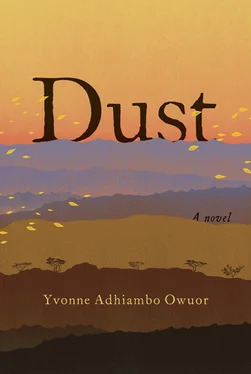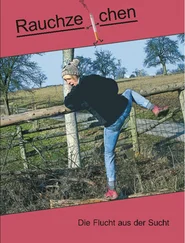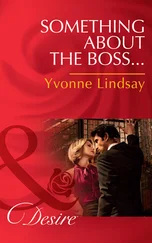IN THE LATE YEAR HEAT OF 1956, WHEN AKAI HAD JUMPED INTO the watering hole, laughing, she dived through a portal into another way of being. Nyipir had clenched his hands, wanted to force her to leave. But her effusive life, Hugh’s fascination held him back. He suppressed his fear even as it growled within him.
Akai never did deliver the message of her suspension from school to her stepfather. Instead, greedy for the promise of the bigness of life, she became Hugh’s mistress.
“For me, he was the face of life. His hair was fire. He had answers. He had traveled farther than anyone I knew. Such a person was what I wanted. This is how I wanted to be.”
Tell me about the world. How big is the ocean? Why doesn’t it snow here, where water is needed most? Echoes. Akai now mocks her curiosity.
“But he read me things from his books. He showed me how to feel his music. Eyes shut, memory resurrects strains of what she cannot name as Chopin’s Nocturne in E minor. She sways with the sounds of that past. This is what I wanted . She says to Ajany.
But Hugh started to fondle and toy with Akai in public. Grabbing at her in Nyipir’s presence. Nyipir also started to act out. Breaking china, dropping kettles, polishing his hands. Not eating. He made himself scarce, throwing himself into carting stones for the new house. Akai began to stalk him. She would toss plates and cutlery just to watch him tense up. She undressed in his presence. Needled him to provoke a reaction. He always bowed and walked away.
A year later, during a sudden rare arid land storm, Hugh decided to sketch Akai where she had been reclining behind a boulder near the rude veranda. He commanded her to stay in the rain. She did. He sketched.
He worked all through the afternoon.
His sketch done, Akai had run in, shivering, pouting and snarling like a mad cat.
“Shut up, cow.” Hugh had screamed, “Can’t you see I’m painting?”
Hugh worked through the night.
Nyipir did not sleep at all.
In the morning, when he was preparing a scrambled-egg breakfast for Hugh and Akai, she walked into the kitchen, clutching her body, still trembling. “Go away.” Nyipir had said.
Akai remembers, eyes glittering: “As if I were a flea. So I slapped him.”
Nyipir did nothing.
Months passed.
Akai says, “Then I got pregnant. I was happy.”
The buzz of flies. A striped bird, scarlet and black-beaked, whizzes past. Around Wuoth Ogik, an overbearing cloud squats over seven people. Petrus wanders along the compound’s fence, looking and looking at the person who had really bound Ali Dida Hada to Wuoth Ogik.
Akai says, “Never thought about Selena. She was not of our life. Even when he brought her here and made me hide myself, even when he left with Nyipir, and I was left here alone, I was happy.”
A soft chortle at youthful folly.
Moths had danced around the lanterns installed by Nyipir. Hugh got up, pulled Akai off her seat, and stripped her in front of Nyipir. She stood unclothed and round-bellied.
Nyipir dropped a tray.
Hugh sometimes tore the paper with his paintbrush, throwing the paint and staining Akai’s body and clothes. He would command Akai to leave it on. And she would walk around in garish and grotesque shades.
Insults in Ngaturkana, applied by Hugh:
“Take this fat thing of yours and keep its ugliness from my sight.”
“Ngilac, talononwa.” Lice, bat.
Nyipir fed Akai fish soup. He stole a goat for her. He kept her from Hugh. Once, when Hugh went on a rampage, Nyipir had led her to the red caves near Wuoth Ogik to wait.
Hugh painted Akai from idealized memory.
One Saturday, Akai started to bleed.
Hugh said, “Is that the end of the bastard?”
Nyipir carried Akai to his small safari bed.
Attending to her, praying the bleeding would stop.
Three months before Akai’s delivery date, Hugh arranged a sudden safari to Lokitaung. Nyipir told Akai not to go. She looked back at him, her smile faked. “We finish this,” she said.
Hugh returned a week later by himself. He explained, “She’s gone back to her people. Among her own kind.”
He had settled into a camp chair, staring out. “Kijana, leta Sundowner. Hiyo maneno imekwisha kabisa. Sasa tutakimya.” Bring a sundowner. That matter is done. Now silence.
Akai tells Ajany that Hugh had pushed her onto a boat with an El Molo guardsman who tied a sheep to the prow, and gave Akai fifty shillings. “You come?” she begged Hugh.
“After baby,” he shouted.
Fifty shillings was good money in those days.
“I went home. They were so happy to see me. They were afraid an animal had eaten me on my way from school. They cried when they saw me.” Akai stretches out her legs, holding to Ajany’s hands.
Akai had told her family that the child’s father was a senior officer who was preparing his army to come for her. She said he had told her to wait for him. She said it was the custom of Boltons to see the children only after they could run. To her family it was an absurd custom. Still, they made arrangements to welcome the stranger into the family.
They waited.
And waited.
They waited.
In spite of the sheep and money, the larger Akai became, the more shame-nurtured silences deepened.
Akai’s beloved stepfather became a laughingstock among the elders. He started calling her section of the family “the outsiders”—this man who had fought almost to death anyone who had tried to do so before. He moved Akai and her mother out, to save face. He did so in tears. Akai said Hugh would claim her, with more cows than had ever been seen in the land.
Akai’s mother set up a homestead two days’ walk away from their real home, near Elemi. There were goats and sheep and a donkey. That was where Akai gave birth. She did not know there would be twins.
Ewoi, the boy.
Etir, the girl.
Caramel-skinned children with large gray eyes.
“Twins are bad.”
There was a tussle, the midwife arguing with Akai and her mother about the terrible portent of this birth. “Nothing good has come today,” she screeched.
“Touch them, I’ll break your neck,” Akai vowed.
Akai’s stepfather — after a raid, on his way back home — left a red calf. It was his way of honoring the children.
Akai Lokorijom loved the calf, which took to sitting with her and following her on long walks. And as the twins grew, there were days when everything was almost good.
1960 collapsed into 1961 as a single, entrenched desiccating drought season. Everything burned. Everything struggled to breathe before drying to death.
Akai’s brother came to take the red cow to join the other livestock, which would be driven to other pastures, in the heart of Ethiopia. He left them two camels, for milk.
In the heart of the drought, Akai fought with her mother over a water jug. She needed the water for her children. Words became a blow. Akai’s mother slapped her to the ground. Told her to stop dreaming. Said she was a mere curse that had tainted life from the moment she was born.
Akai did the unthinkable. She backhanded her mother.
Her mother took her by the head and spat out a dirge: “You are dead.…”
So Akai left, with a bundle of her few things. Her mother packed the twins, too, tied everything to the camel, and pushed them away. “Go and die,” she hurled.
Akai was on her way to Kalacha and Wuoth Ogik, having circumnavigated the brackish lake, when the already fragile camel crumpled on the arid land, groaned, and died.
Akai fell where the camel lay. She spent the day cutting it up and storing its stringy pieces in the folds of her dress. She fed the children with its blood. She walked a full day with the twins, but then she hurried back to the dead camel. When she got there, she found grunting hyenas scavenging the carcass. She backed away. At a safe distance, she fled, carrying the children.
Читать дальше











